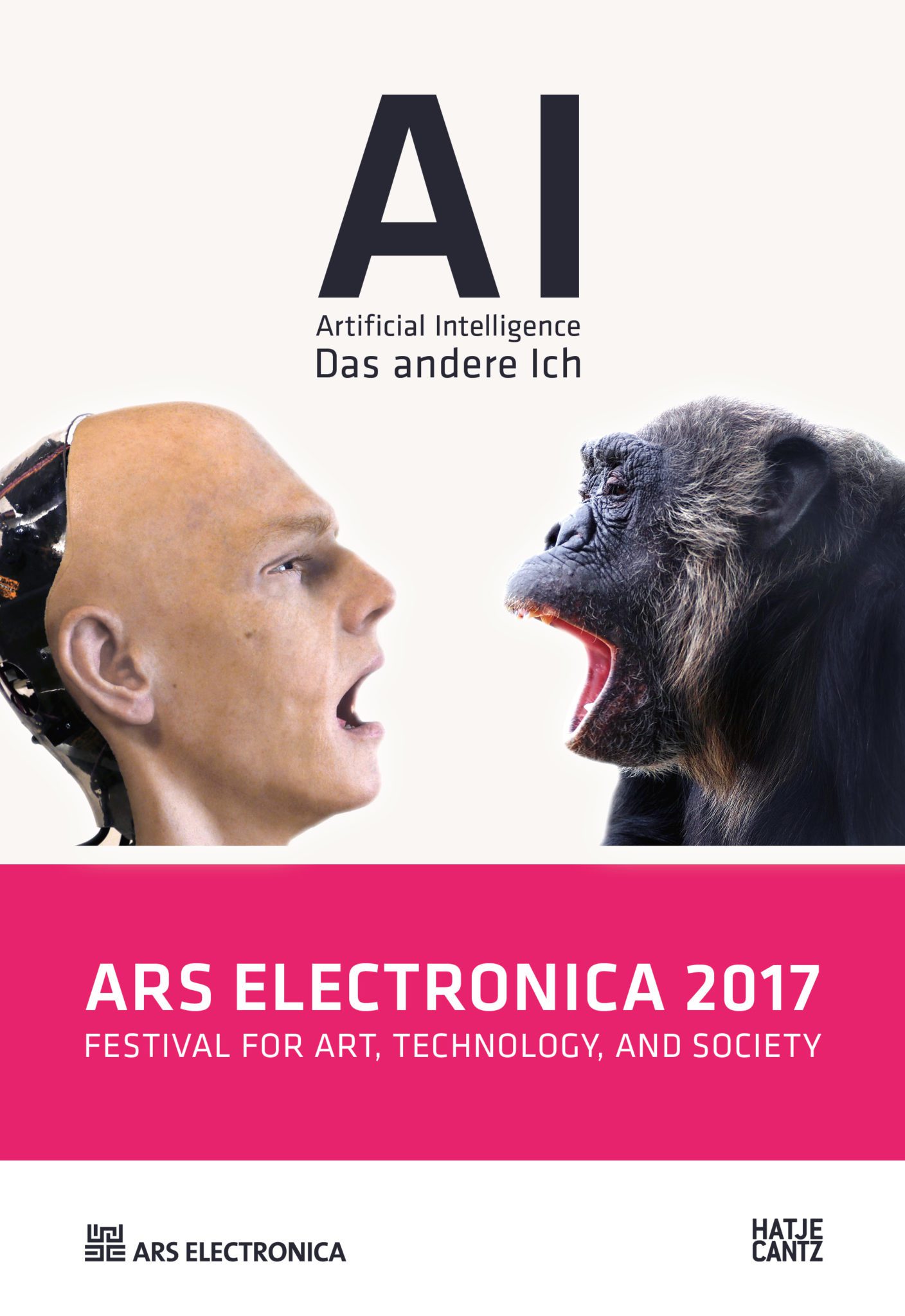AI ARTIFICIAL INTELLIGENCE – DAS ANDERE ICH
ARS ELECTRONICA 2017 SHOW CATALOGUE
“What we are experiencing at present can quite justifiably be termed the Cambrian Explosion of Digitization. Just as futurists have repeatedly foretold, the digital has proliferated in all conceivable directions—though it’s happening a lot faster now, and it’s more intensive and wider-ranging than anticipated. Artificial intelligence (AI) is no exception. Quite the contrary. Confronted by this trailblazing progress, more and more observers are concluding that AI could even be the next evolutionary step, the one with which technology asserts its mastery over us once and for all. Regardless of whether this dystopian scenario ever becomes reality—and if so, when—the vision of AI brings together both the longing to create our perfect likeness and our fear of being overthrown by that very creature. AI is thus the perfect projection surface for a process of reflection upon our conceptions of human beings and the worldviews that are widespread in this digital age of ours. Together with artists, scholars in the natural and social sciences, and experts in business, politics, and religion, Ars Electronica is investigating which of our fears are justified and which are merely expressions of our ambivalent attitude toward technology. After all, if everything really is on the line here, then why are we even getting involved in this adventure with AI? This is a question that’s well worth dedicating an Ars Electronica Festival to.”
Edited by: Gerfried Stocker; Christine Schöpf; Hannes Leopoldseder

excerpts:
AI : THE OTHER I EXHIBITION
“AI is the perfect projection surface for a process of reflection upon our conceptions of human beings and machine beings as well as of the world-views that are widespread in this digital age of ours. The “AI—The Other I” theme exhibitions explore the topic of artificial intelligence from various perspectives: focusing the attention beyond the technological and economic horizon they also scrutinize cultural, psychological, philosophical and spiritual aspects. The ethical-philosophical question, the most cen- tral issue we face in this context, focuses primarily on what it means to be human and far less on a definition of AI. Ars Electronica is interested above all in the visions, expectations and fears that we associate with the conception of a future, all-encompassing artificial intelligence. There is the very central, ethical approach that questions the essence of being human as well as of human intelligence. Connected to this is the very concrete, scientific-technological approach; and then there is a third area in which artistic work is being created with technologies like machine learning. And amidst it all are two poles: the affirmative and the critical. Among the artistic approaches, there are apocalyptical scenarios just as there are elaborations on how artificial intelligence can be deployed in positive ways that are compatible with humankind.”
ON AMY KARLE’S ARTWORK:
“Leveraging the intelligence of human stem cells, Amy Karle created Regenerative Reliquary, 2016, a bioprinted scaffold in the shape of a human hand 3D-printed in a biodegradable pegda hydrogel that disintegrates over time. The sculpture is installed in a bioreactor, with the intention that human Mesenchymal stem cells (hMSCs from an adult donor) seeded onto this design will eventually grow into tissue and mineralize into bone on the scaffold. Regenerative Reliquary made artistic, scientific and technological advances as it required and inspired new innovations for its creation, as well as influencing a new way of thinking. Amy Karle’s bioart work expands opportunities for art and design, biomedical applications, healing and enhancing our bodies, and opens minds to create things that it was never possible to create before.”

